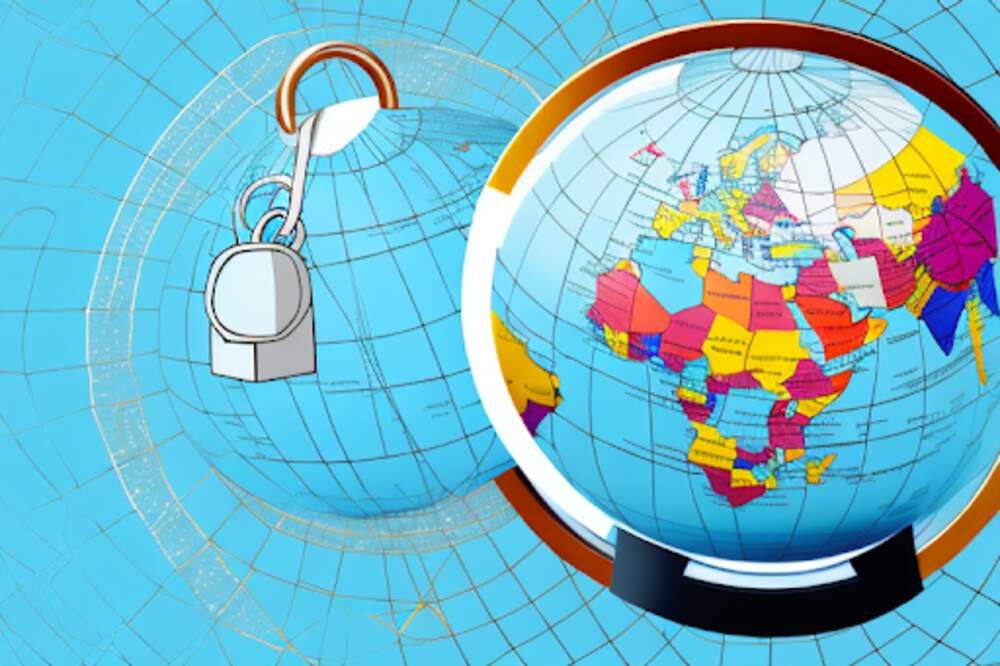How to bypass geo-blocking? Tips and tricks
Learn how to bypass geo-blocking and access restricted content with these clever tips and tricks.
Are you tired of getting blocked from accessing certain websites or streaming services just because of your location? It’s frustrating, right? But don’t worry, there are ways to bypass geo-blocking and unlock the content you want to enjoy. In this article, we will share with you some tips and tricks to help you overcome geo-restrictions and access restricted websites and services.
Understanding geo-blocking
Geo-blocking, also known as geographically restricted content, is a method used by content providers to limit access to their online services based on the user’s physical location. This is achieved by identifying the IP address associated with each user and determining their geographic location. Once the location is determined, the provider can allow or deny access to their services or content.
Geo-blocking is often implemented due to licensing agreements, copyright restrictions, or regional distribution rights. While it may make sense from a business perspective, as it allows companies to control the distribution of their content, it can be frustrating for users who are unable to access desired services or content solely because of their location.
One common example of geo-blocking is restricting certain streaming services to specific countries or regions. For instance, a streaming platform may only have the rights to broadcast certain movies or TV shows in select countries due to licensing agreements with content creators. As a result, users trying to access the platform from a different country may encounter a message stating that the service is not available in their region.
Moreover, geo-blocking can also be used as a security measure to prevent unauthorized access to sensitive information or to comply with regulatory requirements in different jurisdictions. By restricting access based on geographic location, companies can mitigate potential risks associated with cyber threats or data privacy laws that vary from one country to another.
Why geo-blocking exists?
Geo-blocking exists for various reasons, such as:
- Content Licensing: Content providers may have licensing agreements that restrict the distribution of their content to specific regions. This ensures that they comply with the terms of their contracts and avoid copyright infringement.
- Regional Distribution: Companies often have different regional distribution strategies. They may choose to release content gradually to maximize its impact or availability.
- Legal and Regulatory Compliance: Geo-blocking can also be a result of legal or regulatory requirements enforced by governments or regulatory bodies. Certain countries may have laws that prohibit specific content.
Moreover, geo-blocking is frequently used as a tool for price discrimination. Companies may adjust their pricing based on the economic conditions of different regions, leading to variations in product availability and cost. This practice allows businesses to optimize their revenue streams by tailoring prices to the purchasing power of consumers in specific areas.
Another factor contributing to the prevalence of geo-blocking is the protection of market exclusivity. Companies often enter into exclusive distribution agreements with partners in particular regions, granting them sole rights to sell their products or services. Geo-blocking helps enforce these agreements by restricting access to unauthorized resellers or competitors, thereby safeguarding the interests of the contracted distributors.

Tips for safely bypassing geo-blocking
If you find yourself blocked from accessing certain content due to geo-blocking, don’t worry! There are several tips and tricks you can use to safely bypass these restrictions and gain access to the content you desire. Let’s dive into some of the most effective methods:
Use a VPN: A Virtual Private Network (VPN) is like a secret tunnel that allows you to access the internet securely and anonymously. By connecting to a VPN server in a different region, you can mask your IP address and appear as if you are accessing the content from the desired location. This bypasses geo-blocking and adds an extra layer of privacy and security to your online activities.
Smart DNS: Smart DNS services are another great option for bypassing geo-blocking. Unlike VPNs, smart DNS services only redirect specific traffic related to geo-blocking, allowing you to enjoy faster internet speeds. They are particularly useful for streaming services, as they don’t encrypt your data like VPNs do, resulting in minimal impact on your internet connection.
Proxy servers: Proxy servers act as intermediaries between your device and the website you want to access. They can hide your IP address and provide you with access to blocked content. However, it’s important to note that free proxy servers may compromise your online security, so be cautious when using them. Opt for reputable paid proxy services to ensure a safer browsing experience.
Browser extensions: Some browser extensions, such as Hola and ZenMate, can be handy tools for accessing geo-blocked content. These extensions route your internet traffic through their servers and change your IP address, making it appear as if you are browsing from a different location. However, exercise caution when using browser extensions and make sure to choose reliable ones from trusted sources.
Torrents and peer-to-peer networks: While we don’t endorse or encourage illegal activities, it’s worth mentioning that peer-to-peer networks and torrents can sometimes provide access to geo-blocked content. However, it is crucial to ensure that you comply with copyright laws and use legal sources. Always remember to support content creators by accessing their work through authorized channels whenever possible.
Contacting content providers: In certain cases, reaching out to the content provider directly and explaining your situation may lead to a resolution. They may provide you with alternate access methods or make the content available in your region. It’s always worth a try, as some content providers are responsive to user feedback and strive to make their content accessible to a broader audience.
Tor network: The Tor network is a decentralized network that allows users to browse the internet anonymously. By routing your internet traffic through multiple nodes, Tor can help you bypass geo-blocking and access blocked websites. However, the Tor network may be slower than other methods and is not recommended for streaming or downloading large files.
Remember, while bypassing geo-blocking can be useful, it’s important to respect the rights of content creators and abide by legal regulations. Always use these methods responsibly and ensure you access content through authorized channels whenever possible. Happy browsing!
How does geo-blocking work?
Geo-blocking typically works by analyzing the IP address associated with each user. When you visit a website or try to access a service, the provider’s servers capture your IP address and cross-reference it with a database that associates IP addresses with geographic locations.
While there are various methods for determining the physical location of an IP address, they are not always 100% accurate. IP addresses can be dynamic and change over time, often leading to erroneous geo-location results. Additionally, users can employ techniques such as VPNs to mask their actual IP address, ensuring it remains untracked and appears as if they are accessing the content from a different location.
How to bypass geo-blocking without VPN?
If you prefer not to use a VPN or don’t have access to one, there are alternative methods to bypass geo-blocking:
- Proxy Servers: As mentioned earlier, proxy servers can help hide your actual location and provide access to geo-blocked content. However, exercise caution when using free proxy servers, as they may compromise your online security.
- Smart DNS: Smart DNS services can also be used without a VPN to bypass geo-blocking. They function by redirecting specific DNS requests related to geo-blocked content, allowing you to access it directly.
Torrents and Peer-to-Peer Networks: Although not the most reliable or legal method, torrents and peer-to-peer networks can sometimes provide access to geo-blocked content.
How does EonVPN help to access restricted content?
EonVPN, a free VPN service, offers a reliable solution to access restricted content without compromising your privacy or activity logs. EonVPN allows you to connect to its servers in various locations worldwide, effectively bypassing geo-blocking and giving you access to the content you desire.
By encrypting your internet traffic and changing your IP address, EonVPN ensures that your online activities remain private and secure. Whether you’re looking to stream your favorite shows or access region-specific websites, EonVPN provides the necessary tools to bypass geo-blocking and enhance your online experience.
Is bypassing geoblocking legal?
Bypassing geoblocking is a complex issue with varying legality depending on the location, methods used, and reasons behind it. In most cases, bypassing geoblocking is not illegal. However, there are exceptions where it may be considered illegal, such as when it involves engaging in unlawful activities like accessing restricted content for malicious purposes. It’s essential to be aware of the specific laws and terms of service in your region to understand the legal implications of bypassing geoblocking.
Conclusion
Geo-blocking can be frustrating, but with the right tools and techniques, you can bypass these restrictions and access the content you want. From using VPNs and proxy servers to smart DNS services and other methods, there are various ways to overcome geo-blocking and unlock the internet.
Remember to choose a reliable and reputable service provider, ensure your online privacy and security, and respect the laws and regulations of your country. With these tips and tricks, you can enjoy unrestricted access to your favorite websites, streaming services, and online content from anywhere in the world. So, go ahead, bypass geo-blocking, and unlock the internet!

